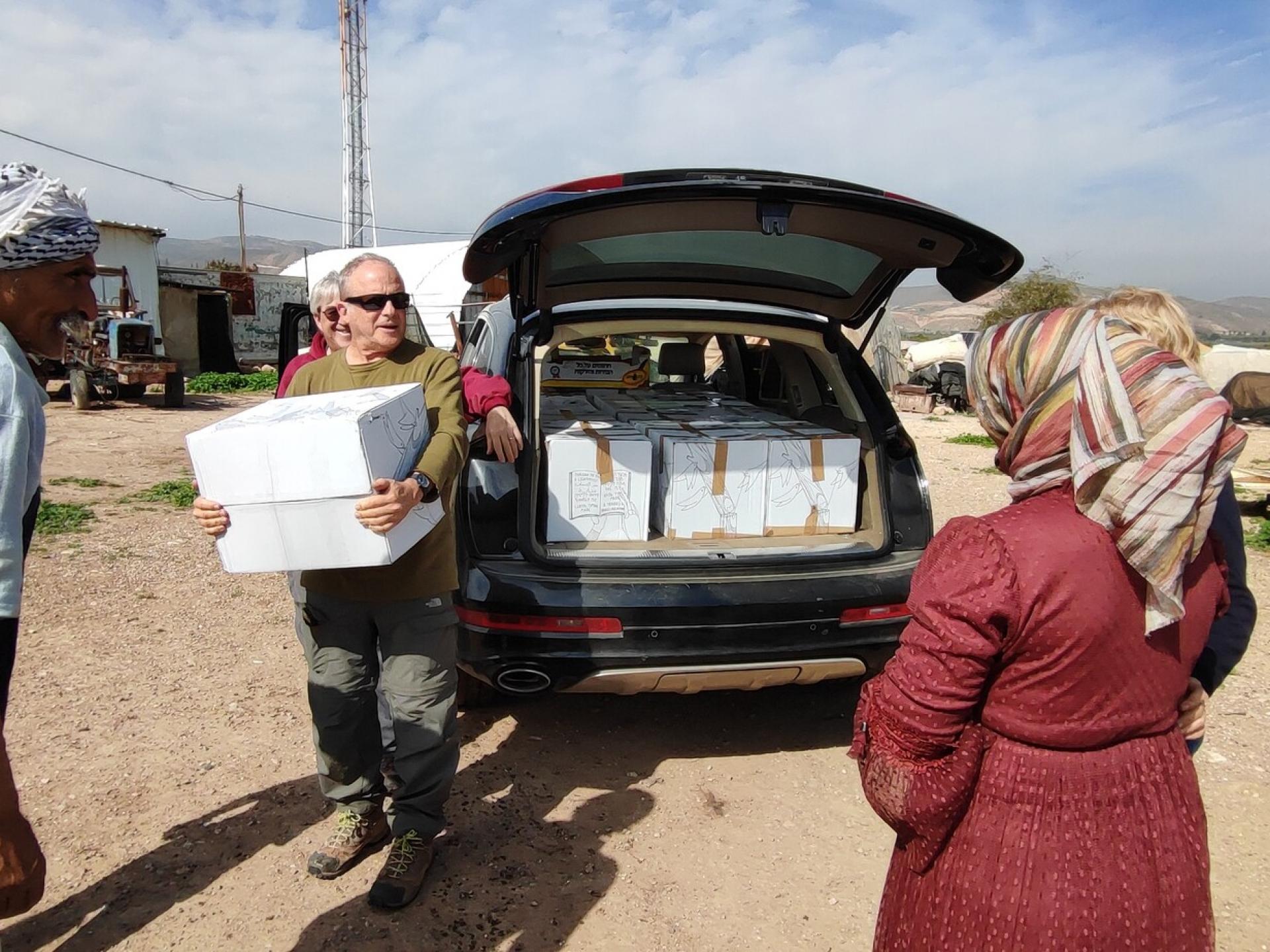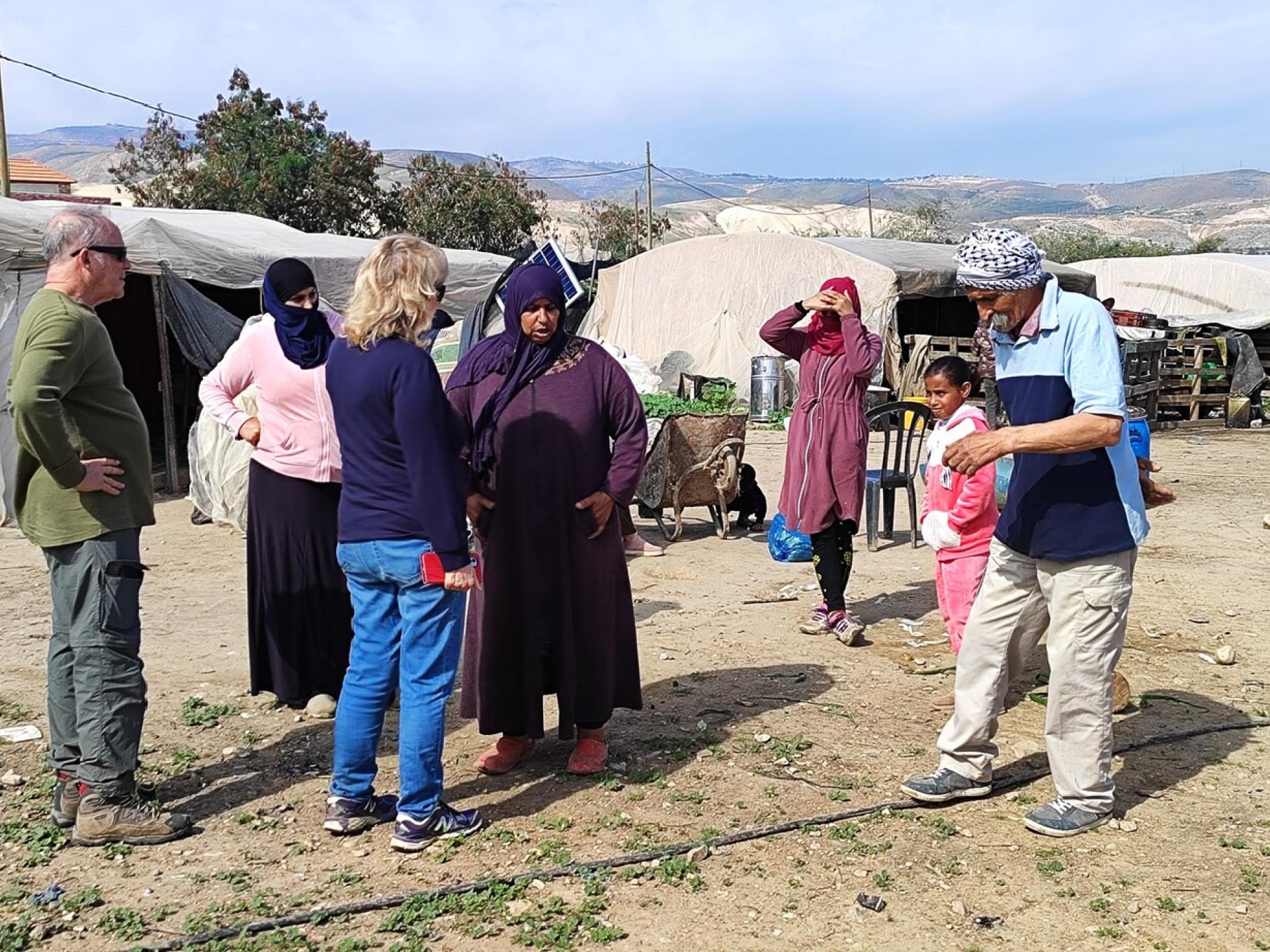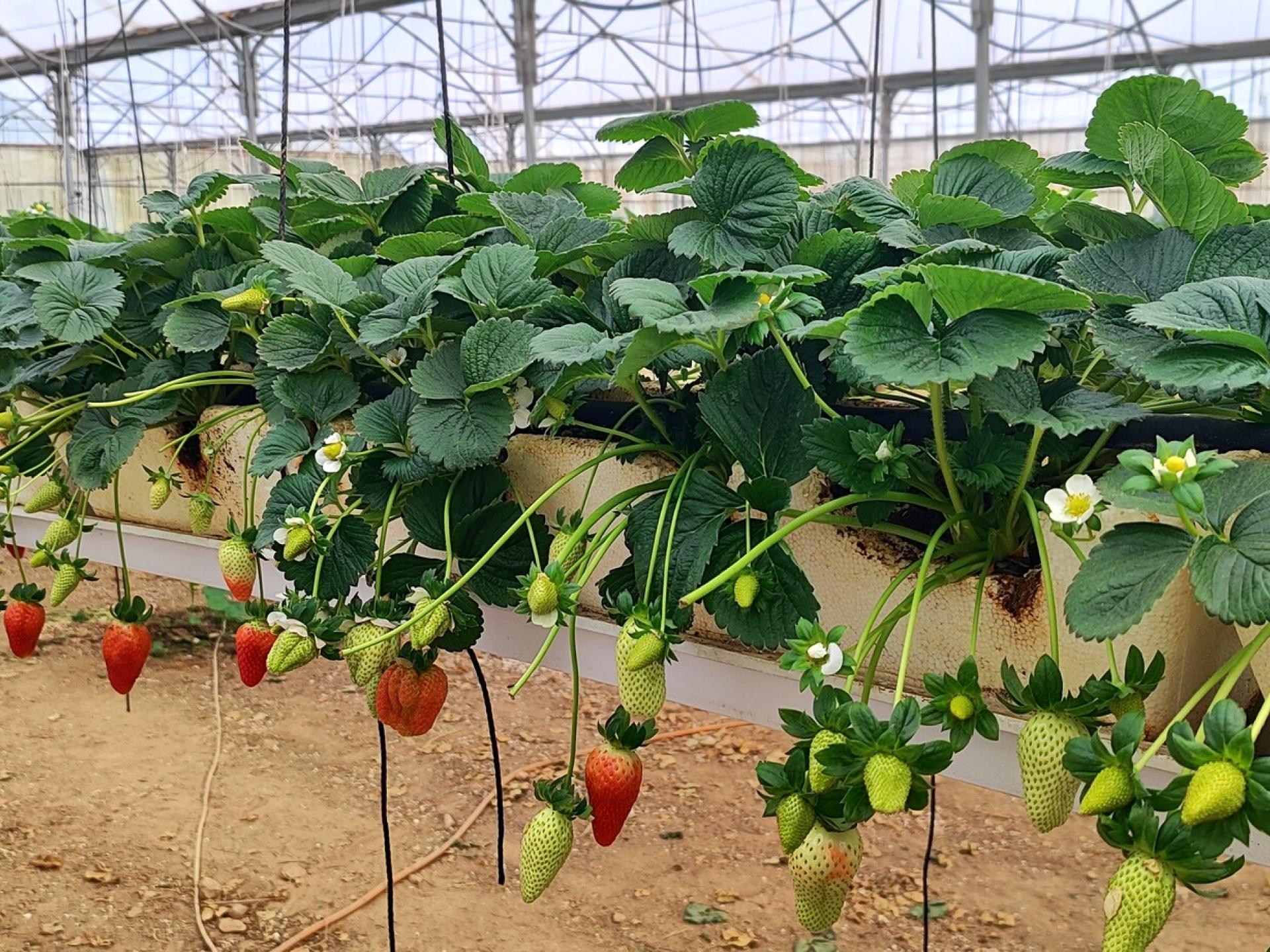Fasayil: In the shadow of the war in Gaza, hunger and ethnic cleansing in the occupied territories
(Bringing food and visiting the family of detained Mahmoud)
The organization Rabbinical Voice for Human Rights, solidarity groups and Free Jerusalem have been sending food packages in recent months to the Occupied Territories and Negev, where deprivation is bordering on hunger.
The plan was for Roni and Gary, of Jerusalem, to bring from Jerusalem crates that the Rabbinical Voice for Human Rights had filled with dry food stuffs (oil, flour, sugar, legumes, pasta, rice etc.), and Nachshon and I would meet them at the entrance to Fasail. I organized the distribution there with Moussa, of the village (husband of Maryam whom we have been driving for her eye shots for the past 3.5 years). I asked him to choose 30 families whose situation is the worst, to give them the products. He researched the matter seriously, but deprivation is so dire in the village that things did not work out as we had wished. On our way we stopped and bought another 45 kilos of oranges to add to the dry goods.
Moussa chose especially widows/divorcees with many children whom they cannot manage to feed. We also brought packages to five families who have been expelled from the Hamra area by violent colonist Moshe Sharvit (whom Britain has now ruled sanctions against) and aided by the Israeli army. At the outbreak of the war, as violence increased and soldiers joined him, the families gave up and left the house they had been living in for the past 20 years. In Hamra they had stone houses and lived in relative welfare, here they live in a miserable tent compound, in real poverty. They begged us to bring them clothes and shoes, anything. In Fasail, too, shepherds can no longer take their flocks to graze because another colonist has chased away local shepherds from there.
When we got to the families chosen, women from other families came and begged to be given food, too.
Since the war broke out, no one has been working. Those who used to work in Israel are not permitted to enter it, and whoever runs a shop of other business has not been selling anything and thus not earning anything. Their customers cannot afford to buy anything. In addition, Israel has blocked the entrance to most localities and traffic has become impossible.
During the past olive harvest farmers have not been permitted to harvest. Our friend Mor’abi from Azun called me this week and said he hasn’t been able to harvest a single olive in his groves. The army forcefully prevented him to reach them, and when passage was approved in December, there was nothing left to harvest there. It is his main source of livelihood. They wait for this harvest all year - it serves domestically as well. What will they live on now?
We left 5 crates in Maryam’s yard. She said five women of the poorest in the village asked that the crates be left with her for they are ashamed to receive charity with their neighbors watching.
The Palestinian Jordan Valley is so beautiful at this time, wearing it fancy green right now. Everywhere we saw flocks of sheep among the houses and in the fields, and on the other side of road 90. Colonist Elhanan from Mal’achei Hashalom and the army, together, prevent them from going uphill to graze in the vast and abundant grazing grounds there.
After giving out the crates, we drove to Mahmoud’s family. He has been in custody for over a month now because of a post he shared three months ago. His wife is exhausted, all the work in the farm and at home is her responsibility now: the sheep, the strawberry and tomato greenhouses, the squash fields, the aging parents (85 years old), two sisters with special needs, and her own children, the youngest of whom is only two. And her home. I bought 10 strawberry packs from her and would be glad to sell them to any of our members.
On our way home, we noticed that Za’atara Junction has been moved 100 meters to the east and has a direct exit to the new road that bypasses Huwarra. We didn’t take it and it is unclear whether the bypass road is already completely opened.



